2017 Yann Durieux, Recrue des Sens, Les Grands Ponts Blanc, Vin de France
About this WINE
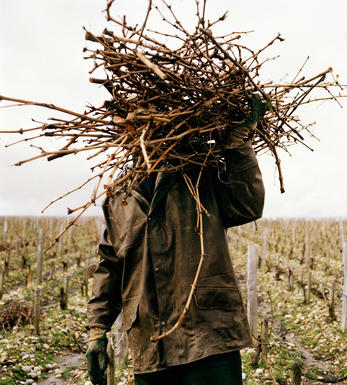
Yann Durieux
Yann Durieux is a remarkably talented and passionate young winemaker making waves in the Burgundy wine scene. Hailing from a family of winemakers in Nuits-Saint-Georges, Yann’s exposure to the world of viticulture began at a remarkably young age. At just 13 years old, he already vinified his first vintage solo, setting the stage for his future in winemaking.
In 1999, Yann had a life-changing encounter with Henry-Frederich Roch, which profoundly influenced his winemaking philosophy and deepened his love for the concept of terroir. Subsequently, he spent a decade working with Domaine des Vignes du Maynes before joining Domaine du Prieure Roch (‘DPR’) in 2007. At DPR, he not only contributed to cellar operations but was entrusted with overseeing their esteemed parcel of Clos-de-Beze. This responsibility was a testament to his exceptional understanding of biodynamic viticulture and profound appreciation for terroir.
In 2010, Yann decided to pursue his dream of reclaiming his family’s lost vineyards in the Hautes-Côtes-de Nuits, and thus, he founded his Domaine, ‘Recrue des Sens.’ For the initial three vintages, Yann utilised the cellars of DPR before finding a vigneron’s house and cellar in Villiers-la-Faye to establish his winemaking base.
Nestled in the Hautes-Côtes-de Nuits, with Domaine de la Romanée-Conti (DRC) as its neighbour, Yann’s vineyards lie in magical terroir. With a profound connection to the land and a family legacy that stretches back through generations of winemakers, Yann brings a deep understanding and love for the region to his winemaking craft.
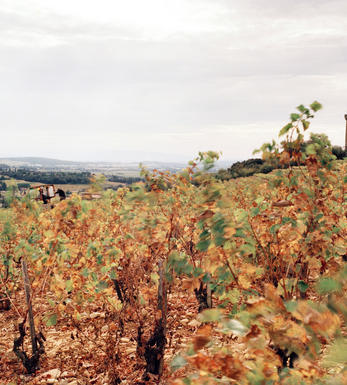
Bourgogne Blanc
Bourgogne Blanc is the appellation used to refer to generic white wines from Burgundy, a wide term which allows 384 separate villages to produce a white wine with the label ‘Bourgogne.’ As a result of this variety, Bourgogne Blanc is very hard to characterise with a single notable style, however the wines are usually dominated by the presence of Chardonnay, which is just about the only common factor between them. That being said, Chardonnay itself varies based on the environmental factors, so every bottle of Bourgogne Blanc will vary in some way from the next! Pinot Blanc and Pinot Gris are also permitted for use in Bourgogne Blanc under the regulations of the appellation.
As Bourgogne Blanc is very much an entry-level white wine for most regions in Burgundy, prices are usually very reasonable, and due to the terroir and climate of Burgundy, Bourgogne Blanc wines tend to have a strong acidity to them, combined with a vibrant and often fruity palate when compared with other whites from the New World, say, allowing fantastic matchmaking with many different kinds of food.
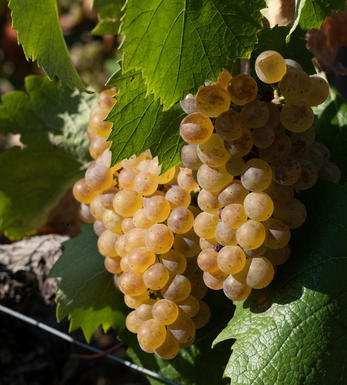
Aligoté
A grape that was first recorded in Burgundy in the 18th century and is still planted almost exclusively there, though there are limited plantings in Bulgaria, Moldavia and even California. It is a moderate-yielding grape that tends to perform best on south-east facing slopes and in warm, dry years.
For your Burgundian vigneron, Aligoté is not nearly as profitable to grow as Chardonnay - consequently it tends to be relegated to lower quality vineyards. In the wrong hands and in the wrong sites it can produce thin, raspingly acidic wines that are remarkably undistinguished. However the best growers produce balanced examples with nutty and citrus hints which are most appealing to drink. The best Aligoté wines traditionally come from Bouzeron in the Côte Chalonnaise. Along with blackcurrant liqueur, it is the key ingredient of Kir.


Buying options
Add to wishlist
wine at a glance
Delivery and quality guarantee